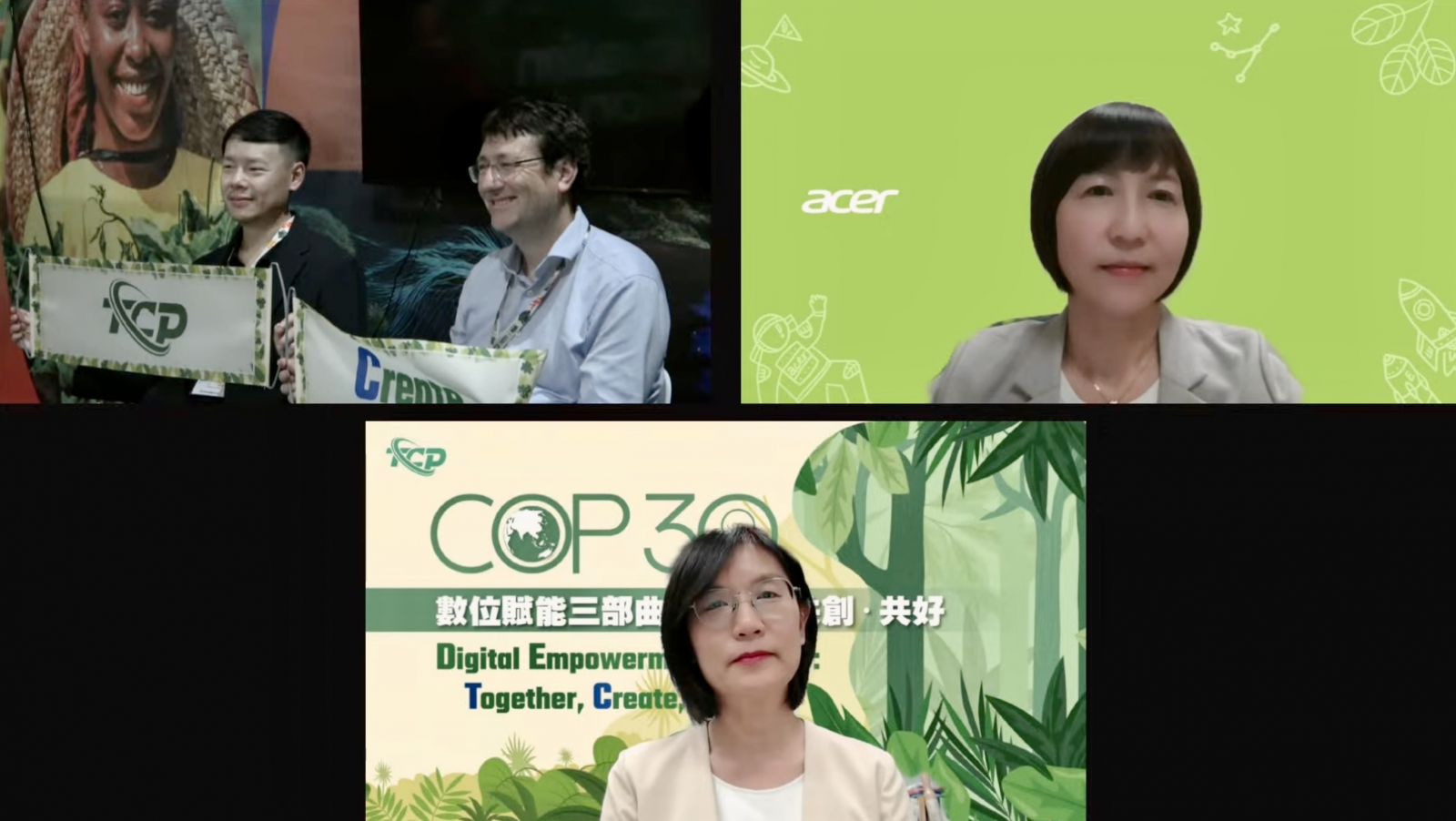
At COP30, Taiwan tech leaders showcased how they are advancing climate action through AI-powered solutions and integrated ESG strategies. Alex Liu of Delta (upper left) joined the session on-site in Belém. (Screenshot of livestream)
At COP30, Taiwan tech leaders Delta, AUO and Acer showcased how they are advancing climate action through AI-powered solutions and integrated ESG strategies. The session, “Digital Empowerment Trilogy Part 2: Create Sustainable Resilience – A Digital Empowerment Journey for Industry,” was co-hosted on Wednesday by the Taiwan Climate Partnership (TCP) and the Global Enabling Sustainability Initiative (GeSI).
With operations spanning multiple continents, these companies are embedding ESG into their core business models. They are leveraging AI-driven energy management, green building technologies, and circular economy systems to transform how they operate and enhance global competitiveness.
Delta: AI-driven energy management for the next generation of data centers
Delta Electronics highlighted how AI-driven energy management is becoming essential for the next generation of sustainable buildings and AI data centers. Speaking on-site in Belém, Alex Liu (劉正寅), ESG Manager at Delta Americas, said the company’s strategy is to deploy smart, in-house technologies across its global facilities to ensure consistent efficiency gains. “ESG and our commercial development are all tied together,” Liu said.
Delta’s Green Building Program reflects this approach. In 2024, its certified factories, offices and donated school buildings saved 45.43 million kWh of electricity, reducing 23,330 tons of CO₂e. One example is the company’s Shanghai R&D Center, which links PV generation, a 300kW/600 kWh battery system, and multiple fast chargers under a unified AI-based management platform.
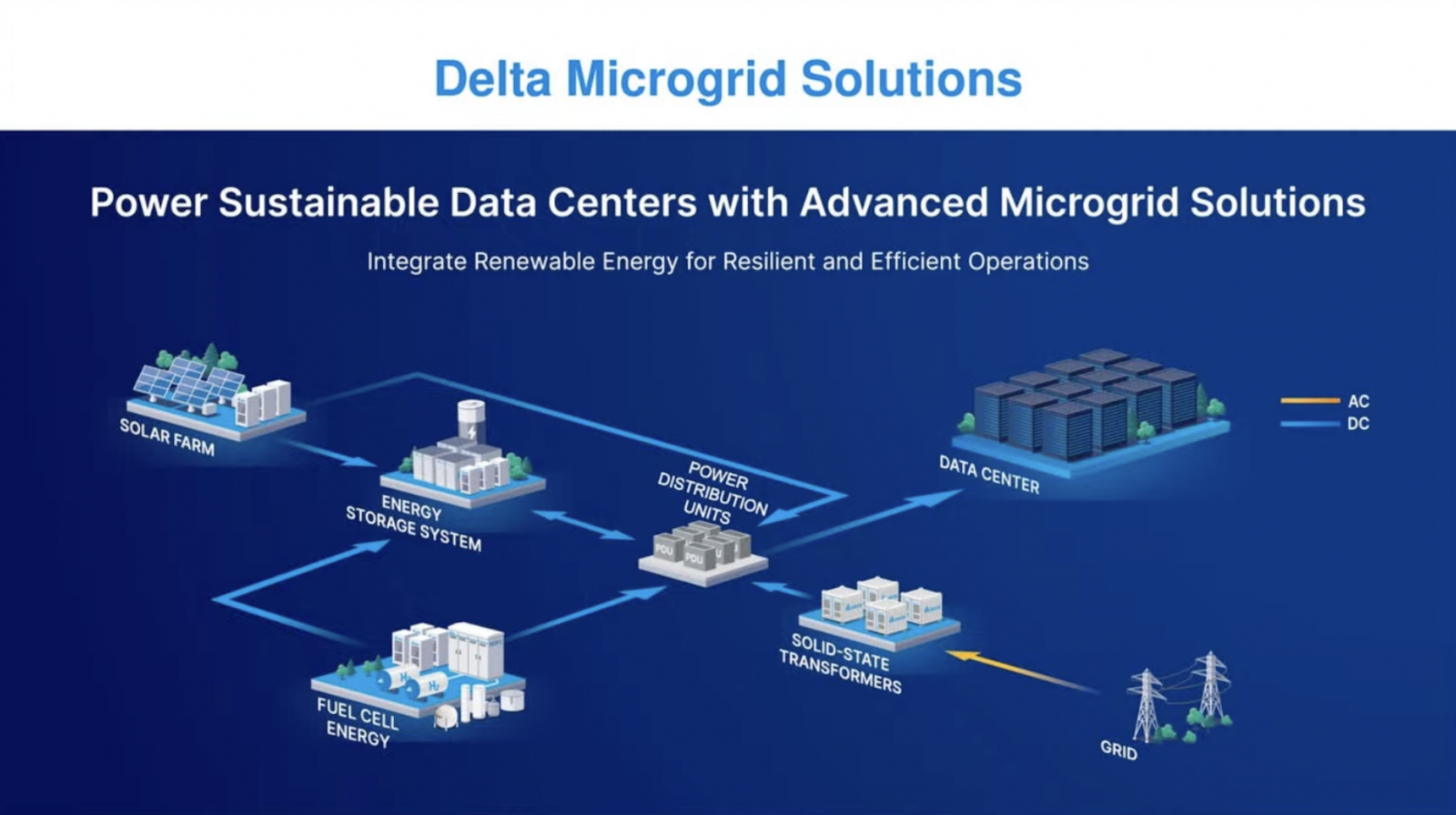
Delta is developing distributed microgrids that integrate renewables, storage and intelligent load balancing to meet the rapidly rising power demands of AI. (Screenshot of livestream)
Delta also showcased its smart green data center, which achieves a PUE (Power Usage Effectiveness) of around 1.2 by combining natural cooling with real-time AI controls. Liu noted the rapidly rising power demands of AI. To meet future demands, Delta is advancing distributed microgrids that integrate renewables, storage, and intelligent load balancing.
AUO: From carbon-neutral buildings to a net-zero corporate strategy
AUO outlined its approach to net-zero transformation, emphasizing that digital tools and transparent data systems are crucial to managing emissions across a complex global supply chain. AUO recently became the first enterprise in Taiwan to obtain ISO 14068-1 carbon neutrality certification for its headquarters building. The certification requires quantifying emissions, setting reduction plans and targets, and using high-quality offsets to balance residual emissions.
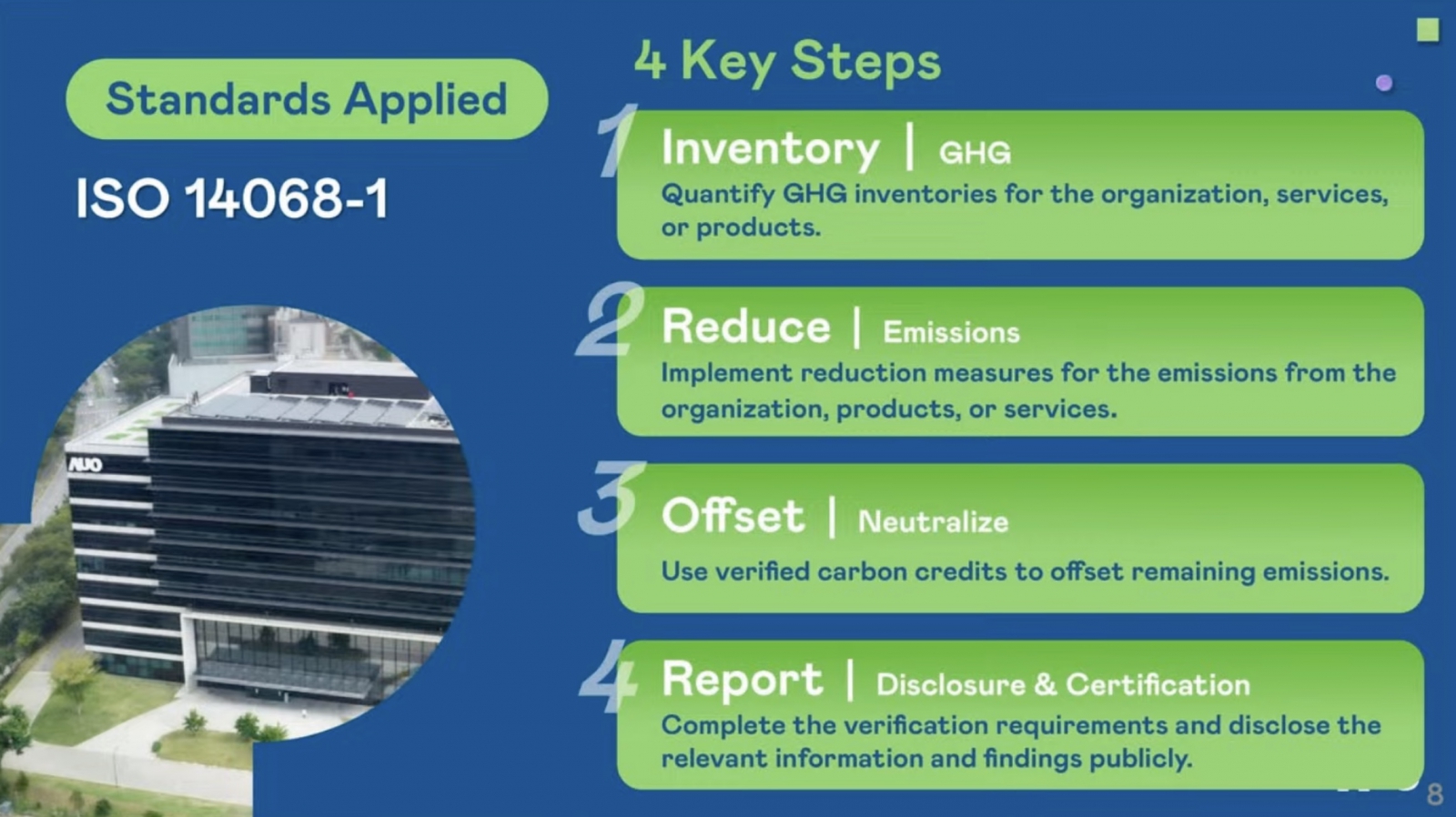
AUO recently became the first enterprise in Taiwan to obtain ISO 14068-1 carbon neutrality certification for its headquarters building. (Screenshot of livestream)
AUO is strengthening operational resilience by combining efficiency upgrades with on-site renewable generation. Measures include automated cooling and lighting, IT equipment optimization, improved recycling systems, and cloud-connected solar monitoring. These contributed to 892,000 kWh in combined energy conservation and onsite generation. “Energy efficiency is not one project but continuous improvement,” said Amy Ku (古秀華), AUO’s Chief Sustainability Officer.
Acer: Circular Innovation and AI for Environmental Protection
Acer showcased how digital innovation and circular economy practices are reshaping product lifecycles across global markets. Grace Liu (劉靜靜), Corporate Sustainability Officer, highlighted Acer’s circular model, which spans design, repair, refurbishment, recycling and materials recovery.
A key part of this strategy is the expansion of repair and reuse services. Acer established two subsidiaries, Enfinitech in Europe and HSN (海柏特) in Asia, which provide repair services for both Acer products and other brands. Enfinitech operates eight repair centers and services about 2.5 million devices each year, ranging from laptops to robot vacuums.
On the other side of the network, HSN became an authorized PlayStation service center in the Philippines last December, driving year-over-year growth of more than 30 percent. “The goal is to extend the product lifecycle and facilitate a circular economy,” said Liu.
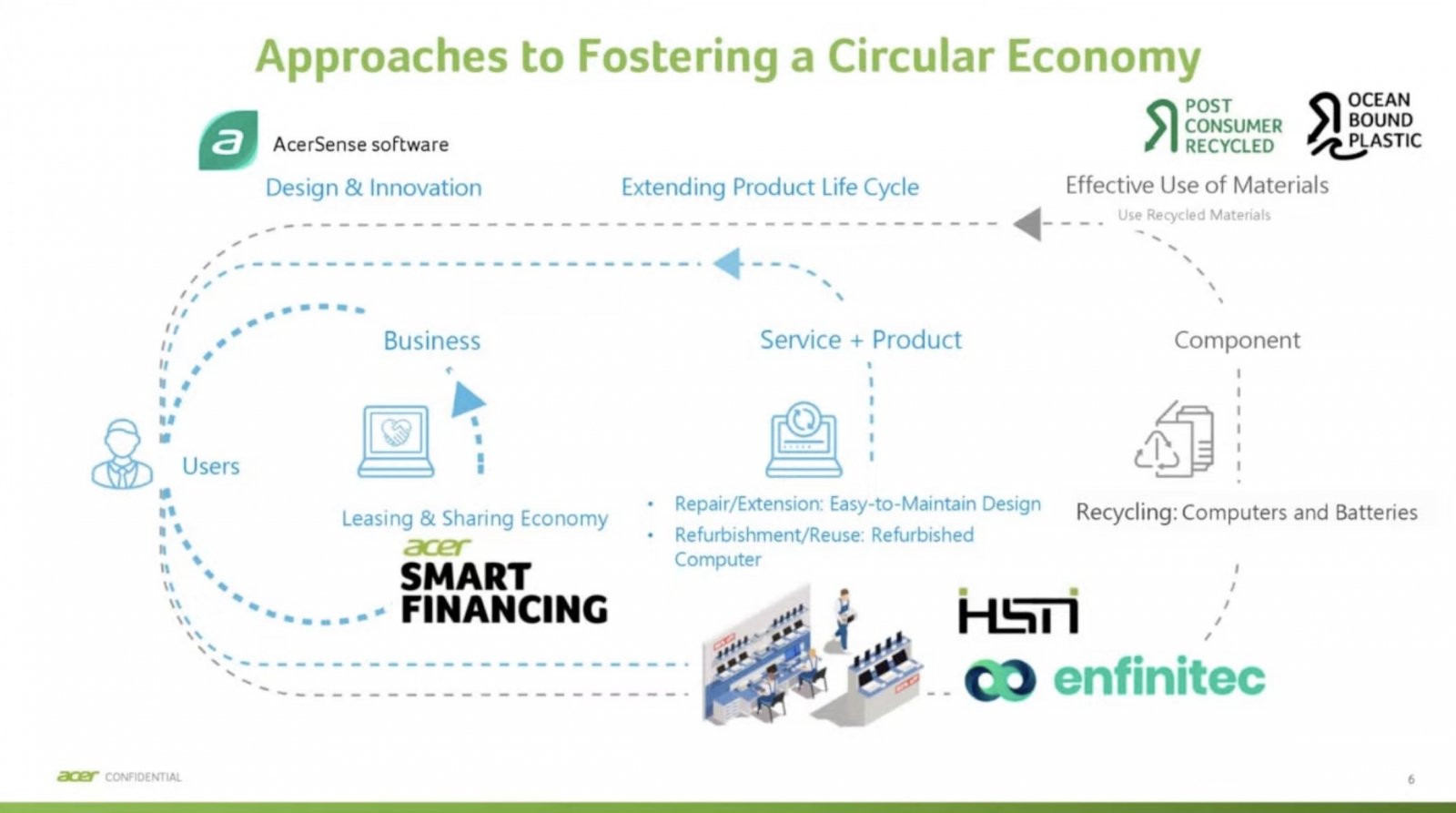 Acer positions its circular model, which spans design, repair, refurbishment, recycling and materials recovery, as a core sustainability strategy. (Screenshot of livestream)
Acer positions its circular model, which spans design, repair, refurbishment, recycling and materials recovery, as a core sustainability strategy. (Screenshot of livestream)
Acer also presented sustainable technologies that support ecological protection, including its AI-powered sea turtle identification project, developed with conservation partners to enhance marine monitoring and citizen engagement.
Reflecting on the diverse strategies presented by Taiwan’s tech companies, forum moderator Björn-Sören Gigler, Senior Digital and Green Transformation Specialist at the European Commission’s DG CLIMA, concluded that “ESG should not be an add-on, but an integral part of the overall business model. It’s good for the environment and competitiveness at the same time.”
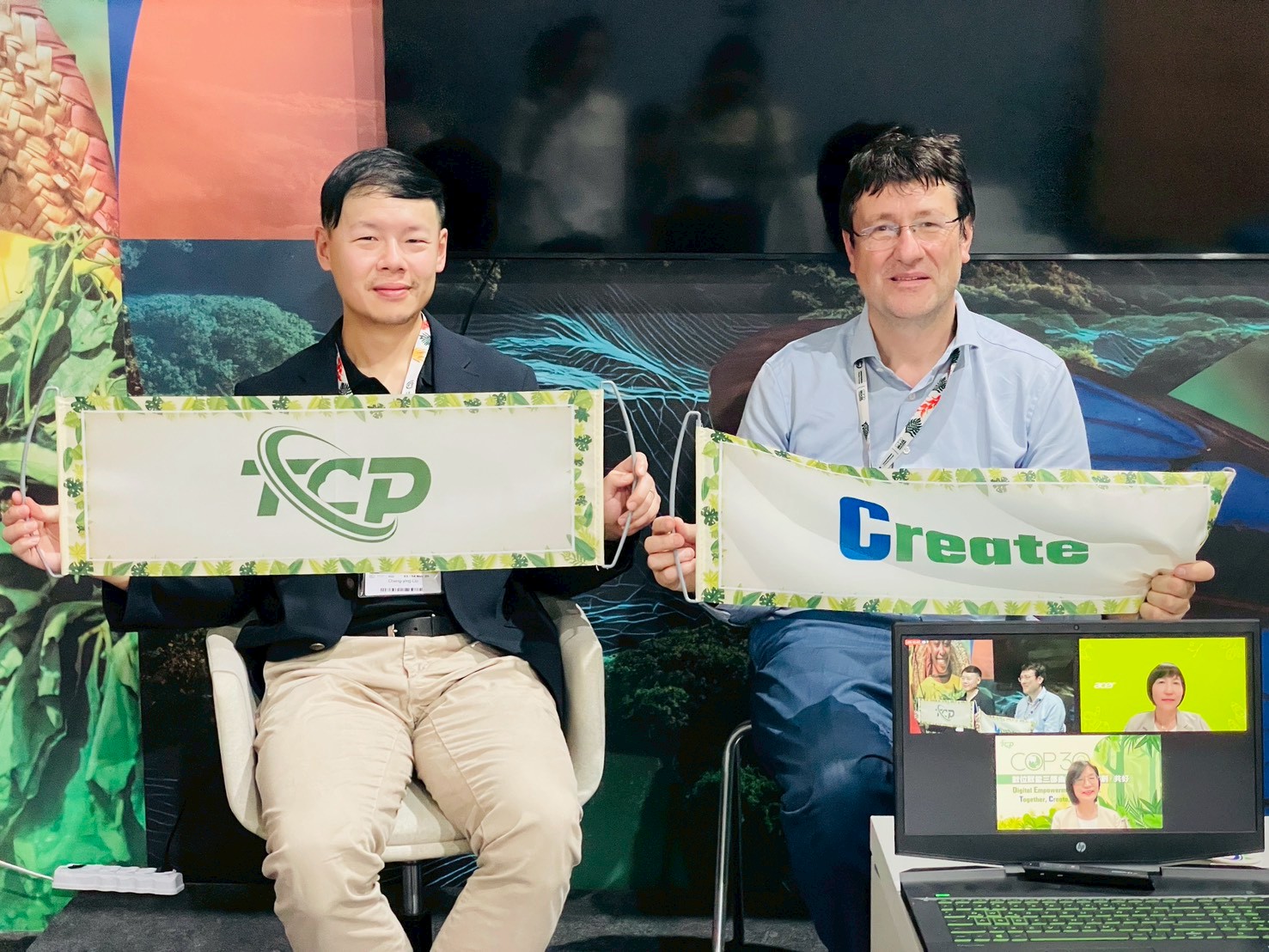
The COP30 session, “Digital Empowerment Trilogy Part 2: Create Sustainable Resilience – A Digital Empowerment Journey for Industry,” was co-hosted on Wednesday by the TCP and the GeSI. (Photo: TCP)
.jpg)


